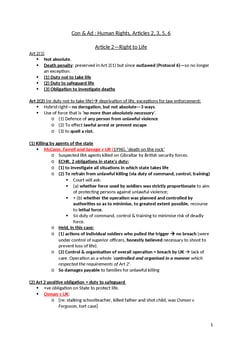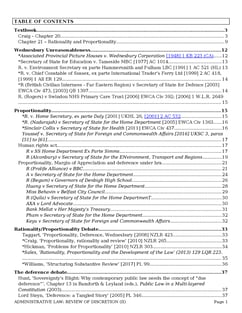Associated Provincial Picture Houses v Wednesbury Corporation [1948] 1 KB 223
Judgement for the case Associated Provincial Picture Houses v Wednesbury Corporation
KEY POINTS
A decision can be challenged and potentially overturned by the courts if it is so unreasonable that no reasonable authority would have made it.
FACTS
Associated Provincial Picture Houses Ltd was granted a cinema license by the Wednesbury Corporation, subject to a condition that no children under 15, accompanied by an adult or not, could be admitted on Sundays.
The Sunday Entertainments Act 1932 allowed local licensing authorities to open cinemas on Sundays, subject to conditions.
The cinema sought a declaration that the condition imposed by Wednesbury Corporation was unacceptable and beyond its legal authority.
JUDGEMENT
Appeal dismissed.
COMMENTARY
This case was notable for establishing the principle of "Wednesbury unreasonableness." The case laid down a standard for courts to assess the legality of administrative decisions, particularly when they involve the exercise of discretionary powers.
The court's decision in this case highlighted that administrative bodies, when exercising discretionary powers, must act reasonably and within the boundaries of the authority granted by law.
The court set a high threshold for courts to intervene in administrative decisions, stating that a decision could only be quashed if it was so unreasonable that no reasonable authority would have made it.
ORIGINAL ANALYSIS
Defendant was empowered under legislation to allow cinemas to open on Sundays “subject to such conditions as the authority think fit to impose”.
He allowed Plaintiff’s cinema to open on Sunday provided that no children under 15 are admitted.
Plaintiff challenged the condition as ultra vires but CA held that the decision was not unlawful.
Lord Greene MR
“If a decision on a competent matter is so unreasonable that no reasonable authority could ever have come to it, then the courts can interfere. That, I think, is quite right; but to prove a case of that kind would require something overwhelming” and this was not the case on the facts.
The question is not what the court considers unreasonable (that would be to substitute the judgment of the court for that of DM) but what no reasonable body would consider reasonable.
RELATED CASES
For Further Study on Associated Provincial Picture Houses v Wednesbury Corporation

A collection of the best GDL notes the director of Oxbridge Notes (an O...
Need instant answers? Our AI exam tutor is here to help.
Ask questions 🙋 Get answers 📔 It's simple 👁️👄👁️
Our AI is educated by the highest scoring students across all subjects and schools. Join hundreds of your peers today.
Get StartedSimilar Cases
Related Product Samples
These product samples contain the same concepts we cover in this case.

 Since 2010, Oxbridge Notes has been a trusted education marketplace, supplying high-quality materials from top achievers at universities like Oxford, Cambridge, LSE, Harvard, and Yale.
Since 2010, Oxbridge Notes has been a trusted education marketplace, supplying high-quality materials from top achievers at universities like Oxford, Cambridge, LSE, Harvard, and Yale.